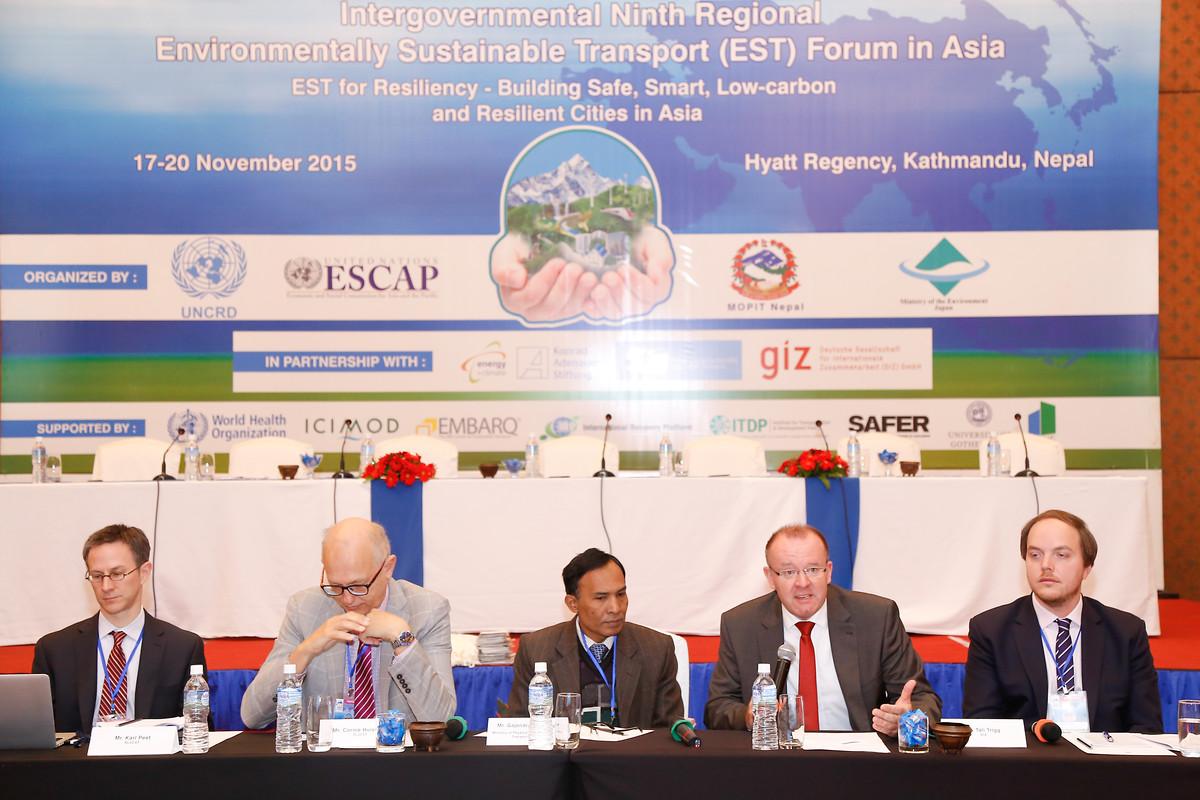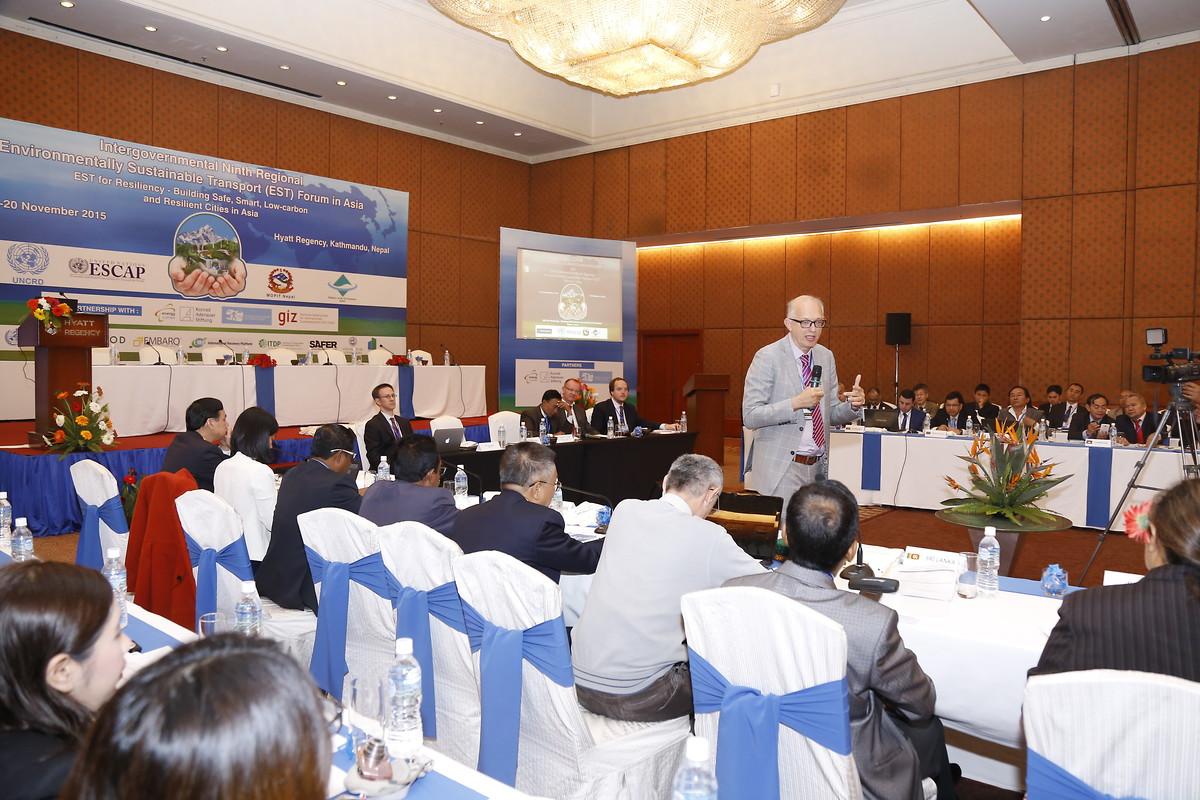Event reports
Throughout 2015 KAS RECAP supported workshops and research studies organized by SLoCaT to promote new concepts on sustainable mobility in Asia and make transport a major issue in the upcoming UNFCCC climate negation.
The EST forum, inaugurated by the Nepali prime minister Khadga Prasad Sharma Oli, provided a unique opportunity to present recent findings on climate change related issues in the transport sector and discuss key recommendations for COP21 with environmental minister and highranking officals from several Asian countries.
After welcoming remarks by Dr. Peter Hefele, Director RECAP, Karl Peet of SLoCaT and Tali Trigg of giz Bangkok reviewed the contribution of the transport sector to GHG emissions and concrete proposals made by Asian countries in the framework of their INDCs for COP21 to lower the impact of mobility on climate change. Counting for around a quarter of global emissions urgent action in the field of mobility is needed to increase energy efficiency and promoting new concepts, i.e. in urban transportation.
During the discussion it became clear that there is no silver bulletfor sustainable mobility. Given the diverse demands and development levels a broad variety of mobility options have to be provided. Besides pure technical solutions changes in behaviour and in urban and rural planning have to be initiated.
In the second part of the workshop six key messages on sustainable mobility had been presented by Cornie Huizenga, Secretary General of SLoCaT:
- Adaptation: Natural disasters not only affect private and public facilities but also transport infrastructure. After an earthquake or a flood, roads that are crucial to access the region for support and reconstruction are often damaged. In Vietnam, roads became unpassable after the tarmac melt in this summer because it was much hotter than in previous decades when the roads were constructed. Most countries at the EST Forum agreed that new traffic systems shall be disaster-resilient and adapted to the challenges of climate change.
- Innovation: Low-carbon transport can only be succesfully and economically implemented on a large scale by making use of new technical developments. Several countries will introduce strict emission limits for cars. Small countries like Bhutan make low-tax incentives to promote the use of hybrid and electric vehicles. Others, such as Sri Lanka and Bangladesh, will invest in the cycle routes in order to make cycling more attractive.
- Urgency: The rising frequency and intensity of negative impacts of the climate change force the vulnerable Asian countries to make quick responses; no delay in massive action is allowed. Many delegates stated their governments are planning to build low-emmission mass transit systems in the urban centres within a short period. The EST Forum is held on an annual basis in order to frequently monitor the progress of each participating nation.
- Accessibility: A transport system which is intended to be sustainable must serve all people also in remote areas. Delegates from several countries stressed that they will implement new means of transport not only in cities which are traditionally the centres of innovation but egally in rural areas. Less developed countries such as Laos and Cambodia for example intend to enhance their railway networks.
- Finance: The development of an integrative and sustainable transport system requires sufficient investment. Many delegates emphasised their countries' intention to provide a higher share of the public expenditure to forward a clean transport infrastructure. It was also highlighted that additional funding of international organisations is crucial to achieve the ambitious targets.
The particpants almost unanimously agreed on the proposals, which will be presented to the international climate community and political decision makers in Paris. KAS RECAP will particpate in several transport related side events at COP 21, organized by its partner SLoCaT between 3rd and 9th December.
For more detailed information on this conference and COP21 side events see SLoCaT’s webpage. In May 2016, UNCRD published an evaluation review on the implementation of the "Bangkok 2020 Declaration" of the EST Forum.





